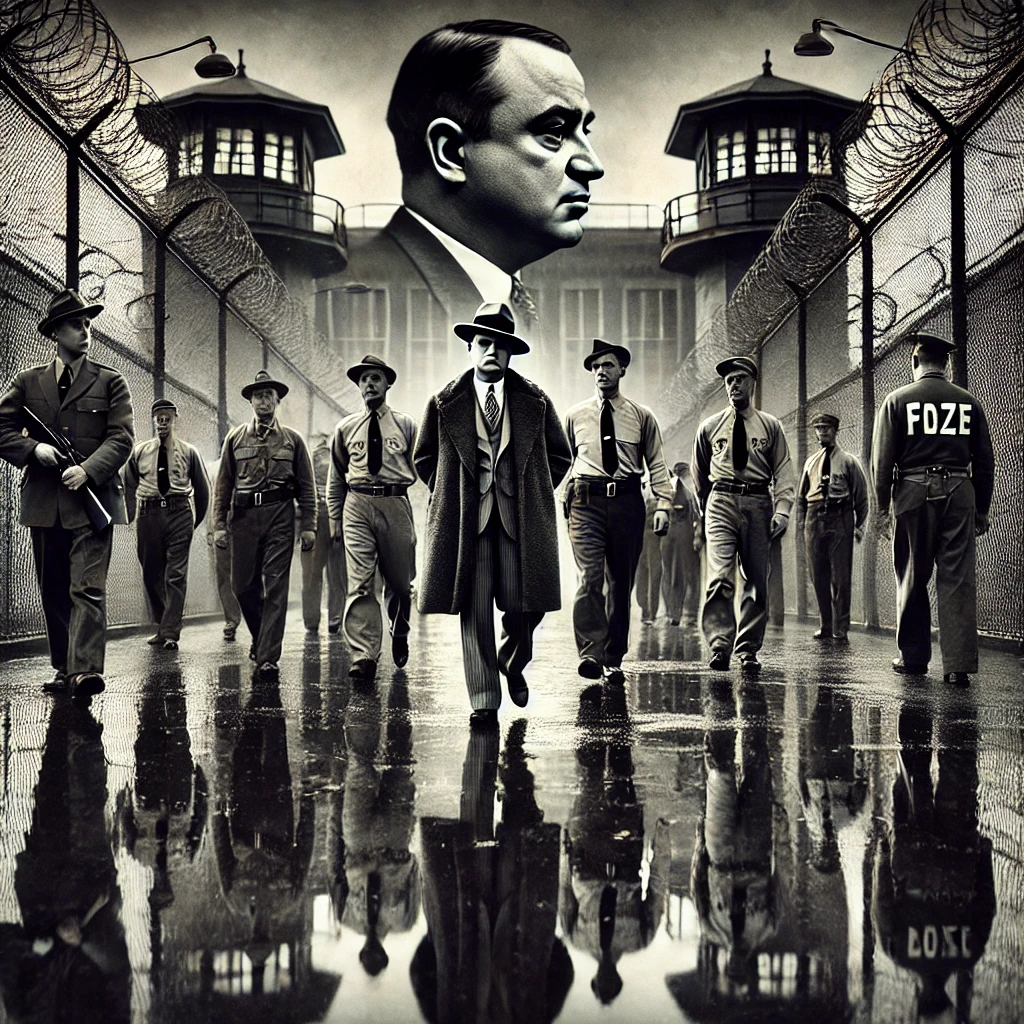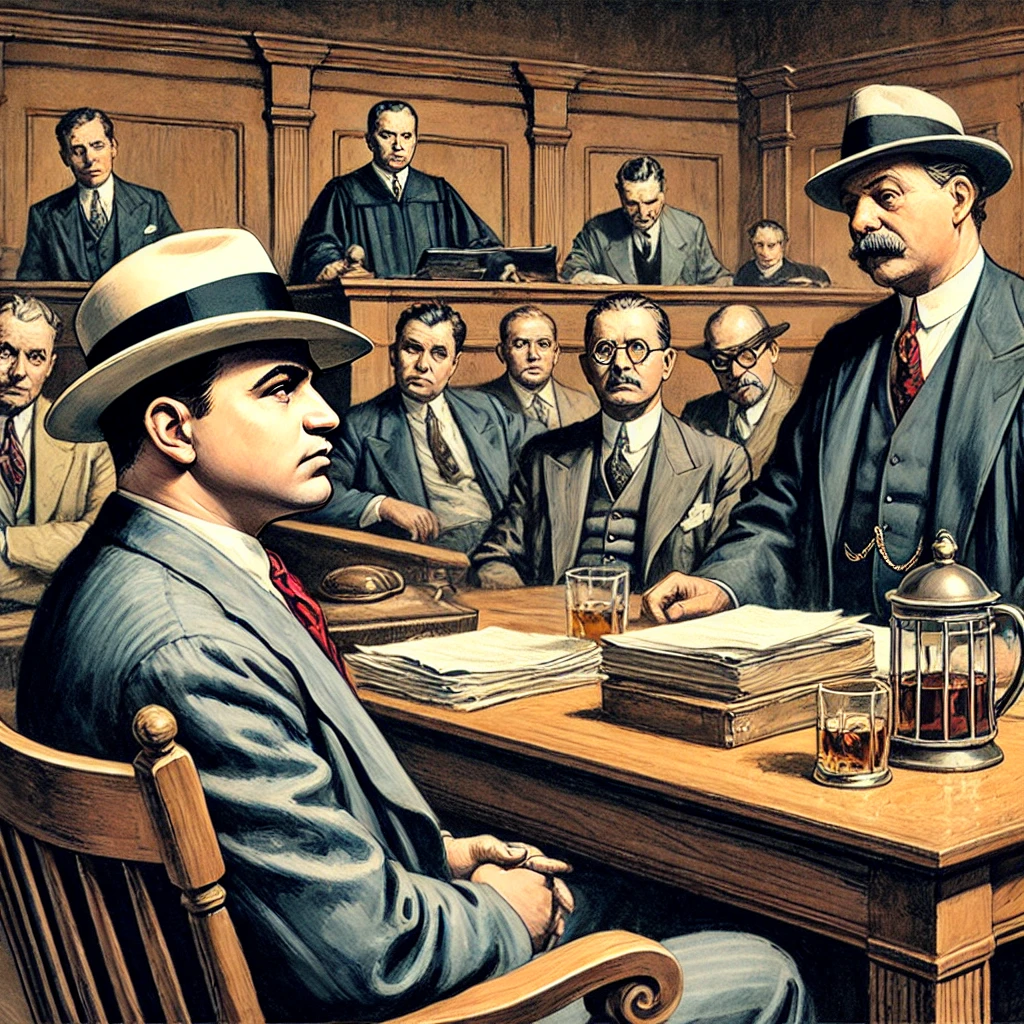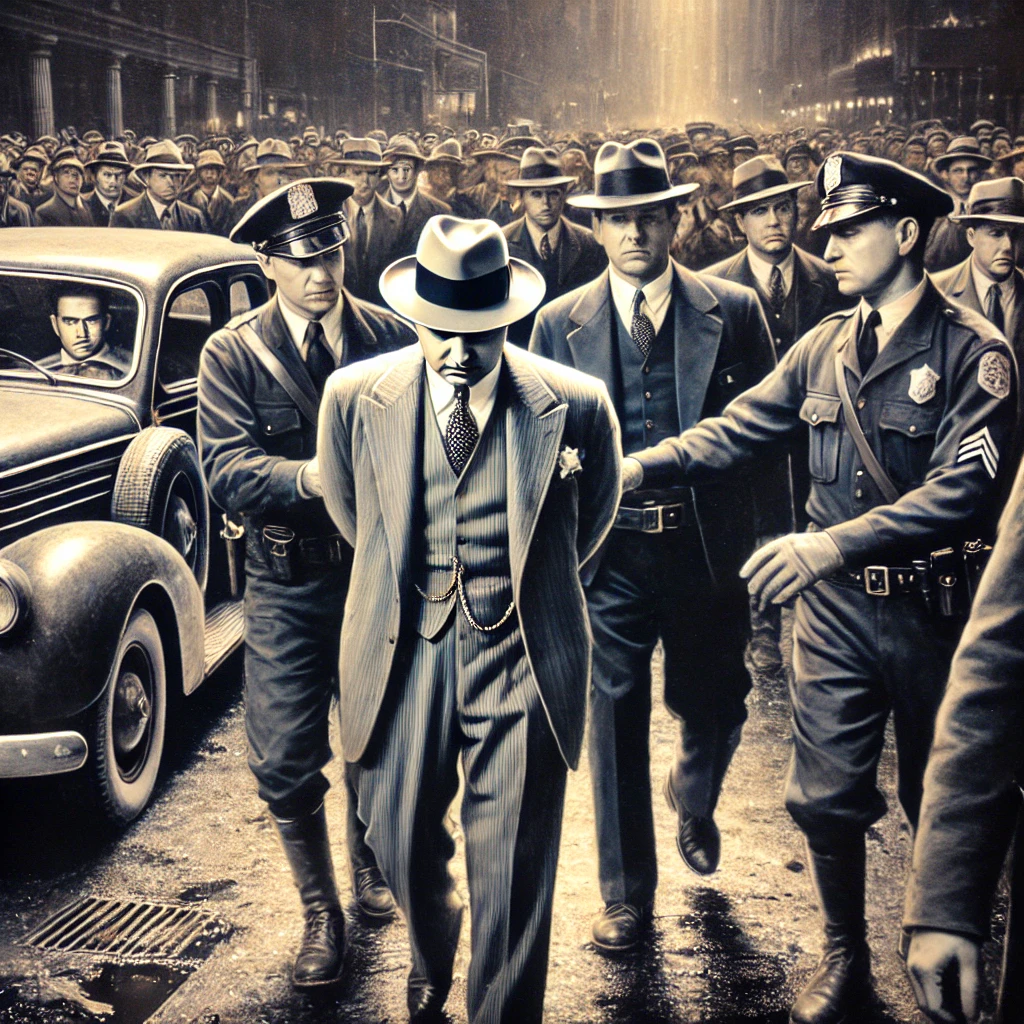On October 17, 1931, Al Capone, the notorious gangster and kingpin of organized crime in Chicago, was sentenced to 11 years in federal prison for tax evasion. This moment marked a significant turning point in the fight against organized crime in America, as law enforcement successfully brought down one of the most infamous figures of the Prohibition era. Capone’s conviction not only symbolized the government’s increasing resolve to combat corruption and crime but also highlighted the complexities of enforcing Prohibition laws in the United States.

The Rise of Al Capone
Born on January 17, 1899, in Brooklyn, New York, Al Capone rose from humble beginnings to become one of the most powerful gangsters in American history. After moving to Chicago in the 1920s, he became deeply involved in the illegal liquor trade that thrived during Prohibition. Capone’s empire expanded rapidly as he engaged in various criminal enterprises, including gambling, racketeering, and bribery. His charm and larger-than-life persona made him a celebrity, but his ruthless methods instilled fear in both rivals and law enforcement.
During his reign, Capone was known for orchestrating violent clashes with rival gangs, most notably the infamous St. Valentine’s Day Massacre in 1929, which resulted in the deaths of seven members of the rival North Side Gang. Despite his criminal activities, Capone managed to maintain a public image as a philanthropic figure, often donating to charities and community projects. However, his extravagant lifestyle and the violence surrounding his operations drew increasing scrutiny from law enforcement.

The Legal Battle
While Capone was widely known for his illegal activities, it was not until the early 1930s that federal authorities successfully pursued legal action against him. The Internal Revenue Service (IRS), under the direction of Special Agent Eliot Ness and U.S. Attorney George E.Q. Johnson, focused on Capone’s finances rather than his violent crimes. They meticulously gathered evidence of tax evasion, utilizing his financial records to demonstrate that he had been making substantial income without paying taxes.
In 1931, Capone was indicted on multiple charges of tax evasion and was ultimately found guilty. The trial, characterized by media frenzy and public fascination, was a significant event in the fight against organized crime. On October 17, 1931, Capone was sentenced to 11 years in federal prison, marking a rare victory for law enforcement in their ongoing battle against organized crime.
Impact on Organized Crime and Law Enforcement
Capone’s conviction and imprisonment had far-reaching consequences for organized crime in the United States. His downfall signaled to other gangsters that law enforcement was beginning to take a more aggressive stance against illegal activities, especially in the wake of Prohibition. While Capone’s absence created a power vacuum in Chicago, it also led to increased violence among rival gangs vying for control of the lucrative illegal liquor trade.

The legal strategies employed to bring Capone to justice also set a precedent for future prosecutions of organized crime figures. The emphasis on financial crimes and tax evasion as a means to combat gangsters became a cornerstone of law enforcement efforts in the following decades. This approach would later be employed in various cases involving organized crime, emphasizing the importance of financial investigations in dismantling criminal enterprises.
The Legacy of Al Capone
After serving just over 7 years in prison, Capone was released in 1939 due to health issues stemming from syphilis. He spent his remaining years in relative seclusion at his estate in Palm Island, Florida, living a life far removed from the crime and violence that once defined him. Al Capone passed away on January 25, 1947, but his legacy as one of America’s most infamous criminals endures.
The story of Al Capone continues to capture the public’s imagination, inspiring numerous books, films, and television shows. His life epitomizes the intersection of crime, culture, and the American experience during the Prohibition era. Capone’s rise and fall serve as a reminder of the complexities of organized crime, the challenges faced by law enforcement, and the societal impacts of Prohibition in the United States.
The imprisonment of Al Capone on October 17, 1931, marked a significant chapter in American history and the ongoing battle against organized crime. His conviction symbolized the increasing resolve of law enforcement to combat the criminal underworld and highlighted the challenges of enforcing laws during a tumultuous period in the nation’s history. As we reflect on Capone’s legacy, we acknowledge the enduring fascination with his life and the lessons learned in the pursuit of justice in the face of corruption and crime. Capone’s story remains a powerful reminder of the complex dynamics of power, law, and morality in American society.
